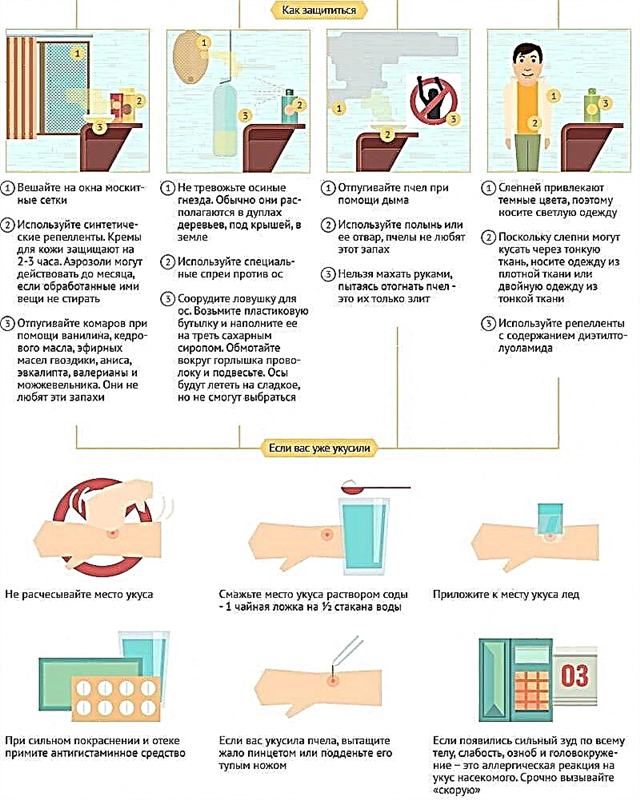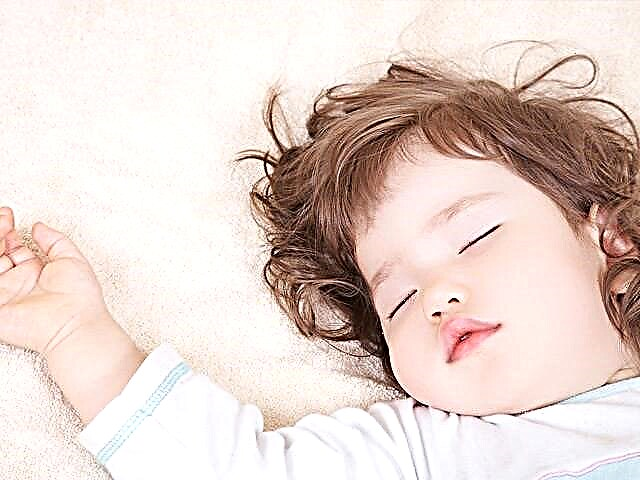
Tick-borne encephalitis is a dangerous disease that affects the central nervous system, causing cerebral edema and severe intoxication. For a child, the disease can become fatal, therefore, protecting the baby from this ailment is an important task for adults. And the main weapon of defense in this situation is vaccination.

Do I need to vaccinate my child?
If you live in the African savannah, there is no great need for a tick-borne encephalitis vaccine. The disease develops when a virus falls into the child's body. It is carried by encephalitis ticks, the habitat of which is Russia, Belarus, Ukraine, and so on. Ticks live in forests, parks, squares, in tall grass, thickets of green spaces. In most regions, the peak of their activity occurs in April – July, it is at this time that ticks multiply and migrate.
It is almost impossible to prevent a tick bite, even notice it in time - not an easy task, therefore the risk of contracting tick-borne encephalitis in spring and summer is very high. Tick-borne encephalitis vaccine is a pharmaceutical preparation that contains particles of the virus - the causative agent of a dangerous disease. They cannot cause an independent illness, since they were previously weakened, rendered harmless.
In fact, these are only parts of the protein coat of a real aggressive virus. But they can activate the immune system, "train" it to recognize a real virus and, if necessary, if it penetrates the body, be able to quickly deal with it.

The effectiveness of the tick-borne encephalitis vaccine for children is estimated at 95%, this means that the overwhelming majority of vaccinated individuals develop a complex of antibodies to this virus. Can a child get sick with tick-borne encephalitis after vaccination? Maybe no one is safe from this but in a vaccinated child, the disease will be mild and will not cause total damage to the brain and spinal cord, serious complications that can lead to the death of the child or his disability.
therefore vaccination is considered important and necessary for all children who live in areas where ticks are found. In regions where the risk of tick-borne encephalitis is high, for example, in the Urals, vaccination is mandatory; in regions with moderate and low prevalence of the disease, the decision to vaccinate is made by parents.
And before making this decision, it should be well understood that the risk, even if it is moderate or low, is not justified when it comes to children. For every 600 ticks, there is one that carries the deadly virus. In 2–5% of cases of infection, medicine is powerless, the child dies. The common consequences of tick-borne encephalitis include paralysis of the limbs, upper half of the body, impaired visual function, hearing, and psyche.
The situation is further complicated by the fact that There is no effective way to treat tick-borne encephalitis in nature. Doctors provide only symptomatic help to a sick child, support his organs and systems, but they cannot predict how destructive the consequences of severe intoxication can be.
Important! Ticks can cause more than tick-borne encephalitis. Ixodid ticks cause borreliosis. There is no vaccine against borreliosis. The Lyme disease vaccine (this is what tick-borne borreliosis is called) was created for dogs, cats - it is a veterinary drug. For people, such a method of protection has not yet been invented, although scientists are diligently working on this problem.


Vaccination regimens
There are two options to create immunity against tick-borne encephalitis. The standard vaccine prophylaxis regimen implies three injections during the year. Your own immune defense against a dangerous disease is formed half a month after the second injection. If a domestically produced drug is used, then the scheme is three-stage: after the first vaccination, the second is given in 1-3 months, and the third - a year after the first. Imported vaccines are used in a slightly different way: the second injection is given 1–7 months after the first, and the third — 9–12 months after the first.
Revaccination should occur every 3 years, which will maintain immunity in full combat readiness. The accelerated scheme implies two doses of the drug within two weeks. It can be used in an emergency, for example, if a child must travel to an area with a high prevalence of tick-borne encephalitis.

Age: when can a vaccine be given?
Vaccination against a dangerous disease spread by encephalitis ticks can be done from one year of age. But such small children are used only imported vaccines, which are made using high purity of the drug. Domestic vaccines against tick-borne encephalitis have an age limit of up to 3 years. They can be used if the child is already 3 years old.

When to do it?
Considering that the peak of the incidence of tick-borne encephalitis falls on the time of increased activity and migration of ticks (April – June), it is by the end of spring and early summer that a strong immune defense must be created. For this the first vaccination can be given in January-March, and the second in March-April, the main thing is that at least 2 weeks have passed since the second vaccination before the onset of tick activity (this is the period needed for antibody complexes to form in the body).
If you find it difficult to calculate the term, it is better to consult a doctor who will help you do this without errors. The vaccination calendar does not indicate specific dates for vaccination.

Who is it contraindicated for?
There are clear contraindications to vaccination, which are divided into absolute and relative. Since the virus particles for the production of the drug are grown on chicken embryos, vaccination is contraindicated in children who suffer from an allergic reaction to chicken protein. This form of allergy is not the most common, but it is an absolute indication for not vaccinating. Relative contraindications - temporary, in which vaccination is not canceled at all, but only temporarily postponed to a more suitable time, when it will be possible to give an injection to the baby without unnecessary risks.
Such contraindications include the following:
- an acute illness of any type at the moment;
- exacerbation of a chronic disease of any type at the moment;
- congenital or acquired HIV infection;
- a state of immunodeficiency after a serious illness, due to autoimmune diseases, after treatment of an oncological disease;
- chronic kidney disease in the acute stage.


It should be understood that the introduction of a drug with biological activity changes the state of the body, therefore the increased load on the immune system, which is busy at this moment with the solution of more pressing tasks, is not welcome. The vaccine is also not given after the child has already been bitten by a tick. Often parents ask for this, but do not understand that the reason for the refusal is justified: there is no need for a vaccine after a bite.
If the tick was infected, then the child will be hospitalized in any case and treatment will begin, and if the tick turned out to be "clean", then the vaccination is better done at the beginning of the yearto build up adequate immune defenses for the next spring-summer season.

Side effects
Usually, the vaccine is well tolerated by the child's body, as evidenced by numerous reviews of parents. But side effects of a biologically active drug are still possible, especially for domestic vaccines. Immunity after the introduction of the protein membranes of the virus begins to work more actively, concomitant reactions are possible.
- The injection site turns red, there is a local reaction, swelling, the child may complain of itching, burning sensation. These unpleasant sensations usually go away within 1-3 days after vaccination, you should not be afraid. At the time of the manifestation of the reaction, it is forbidden to smear the injection site with anything, make lotions, seal it with a plaster. It is important to make sure that the child does not itch. You can swim and wet the injection site, but you should not rub it with a washcloth.
When scratching, suppuration appears, you should definitely consult a doctor - the child, most likely, has brought an infection into the wound, local treatment may be required.

- Allergic skin manifestations, such as localized urticaria. Such a rash usually does not cover the entire body or most of the skin; it is localized only in certain areas. When such redness appears, it is important to give the child an antihistamine that will help stop the production of gestamine and reduce sensitization - Suprastin, Loratadin, Tavegil. The specific drug and dosage can be suggested by a doctor who will take into account the age characteristics of your child. Be sure to ask this question when leading your child to get vaccinated.

- Swollen lymph nodes. It is about the enlargement of the nodes, and not about their inflammation. Peripheral lymph nodes are slightly enlarged, they are hard, palpable, but not painful, touching them does not cause pain in the child. You do not need to do anything about this, the symptom usually goes away 2-3 days after vaccination.

- Headache and fever after vaccination. A rise in temperature is possible, both up to 37.0 degrees, and up to 38.0 degrees and even slightly higher. But this reaction quickly goes away if the child is immediately given a dose of an antipyretic agent or a non-steroidal anti-inflammatory drug (Ibuprofen). Remember that children should not be given aspirin and its derivatives. The best choice is any paracetamol-based drug. A doctor should be consulted if the fever after vaccination persists for more than three days.

- Rapid heartbeat, nausea, bloating, vomiting, and diarrhea... These manifestations may be associated with the side effects listed above, in this case they will be a direct consequence - at a temperature, the child often has a rapid heartbeat, and urticaria can occur with diarrhea and nausea. Adult help is symptomatic.

How is the vaccine made and what drugs are there?
The vaccine is injected under the skin in the shoulder in the deltoid area. When vaccinated in a public medical institution, the vaccine is given free of charge, if there is no vaccine (in areas with a low prevalence of the disease, this happens), the vaccination can be done in a private clinic for a fee. Domestic vaccine called "EnceVir" will cost 400-500 rubles, and imported, for example, Austrian "Fsme-immun" - 1000-1500 rubles per dose. And there is also a German drug "Encepur"... The vaccination schedule for all drugs is the same.



